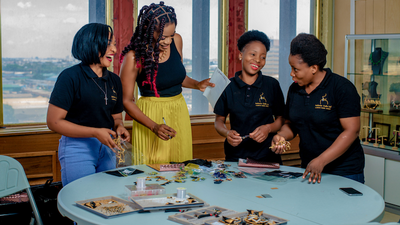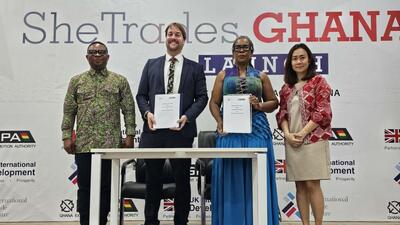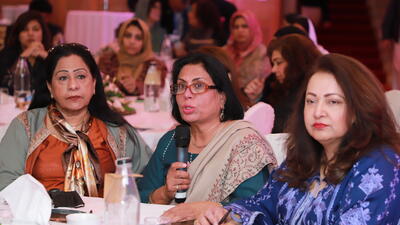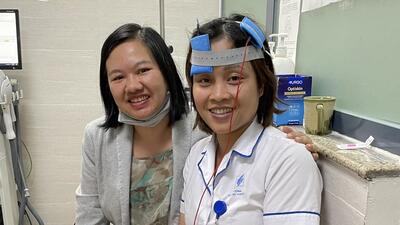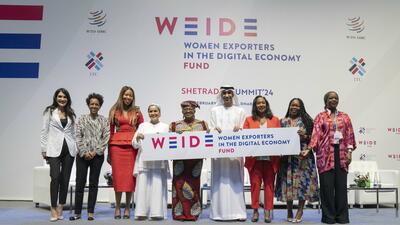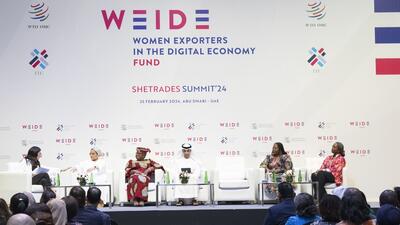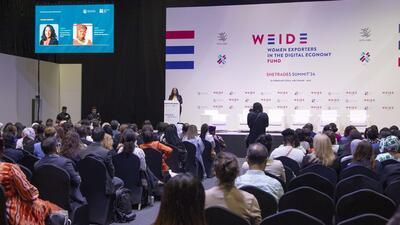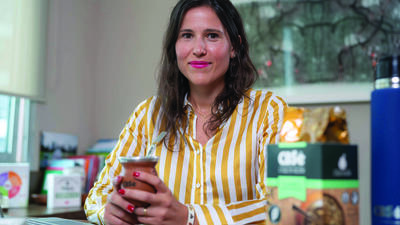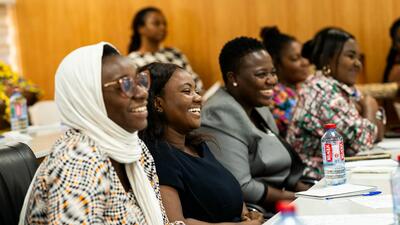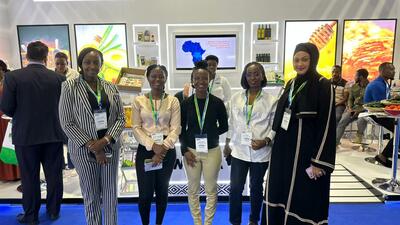
Women’s economic empowerment through trade
(Geneva, Switzerland) Executive Director Pamela Coke-Hamilton’s closing remarks at the annual meeting of ITC SheTrades Hubs.
His Excellency Simon Manley, UK Ambassador and Permanent Representative to the WTO and UN in Geneva, dear colleagues, dear friends.
Congratulations on concluding the annual meeting of the SheTrades Hubs! And from what I heard at last night’s networking reception, and what I’ve seen today and heard from my ITC colleagues, it’s clear that it’s been a smashing success.
This year’s event brought together representatives from the host institutions of the 17 SheTrades Hubs, along with a representative from an institution that may soon be hosting a Hub of its own. You came to Geneva from locations as far flung as Bangladesh and the Dominican Republic, taking time out of your packed schedules to come together and imagine where this global network can go next.
Over the past four days, you’ve had a chance to share your experiences, outline the challenges you’re grappling with, and exchange ideas on ways to work together more closely. You’ve heard inspiring stories from recent collaborative efforts among the Hubs, such as the trade missions that the SheTrades Mauritius Hub undertook to bring women entrepreneurs to visit the SheTrades Hubs in Kenya and South Africa, respectively, and in turn make lasting business connections.
I’m delighted to hear that there are already concrete plans in the works for future collaboration, building on the momentum from this week’s sessions. For instance, I’ve heard that the Rwanda and Nigeria Hubs are looking at how they could work together to support women entrepreneurs in Rwanda’s horticulture sector as they seek to get their products to Nigeria’s market.
This week’s conversations on financial inclusion are also leading to deeper ties being forged between the Kenya and Bangladesh Hubs. My colleagues tell me that the SheTrades Kenya Hub will be sharing with their Bangladesh counterparts what they’ve learned about how to develop financial products that factor in gender considerations, and that a Bangladeshi financial institution will soon be sending representatives to Kenya to meet with that Hub’s host institution, the ABSA Bank, and learn more.
Please keep those conversations going and reach out to us with your feedback: that will help us understand what you need most, as you build towards the next phase of the SheTrades Hubs—what we like to call SheTrades Hubs 2.0.
I’m also deeply grateful with how open you’ve been in sharing your experiences not just in this room, but with the Geneva trade policy community this week. The examples you highlighted during the Informal Working Group on Trade and Gender helped make concrete to WTO Members and Observers the challenges that women entrepreneurs face. You also helped show them how innovative your Hubs, and the women-led MSMEs you serve, have been when crafting solutions.
You showed them that women’s economic empowerment through trade can deliver far more than economic growth and jobs. When women-led MSMEs succeed, their communities do too. We’ve seen women-led MSMEs fill major gaps in rural health services. We’ve seen them develop creative solutions to grow and process better-quality food, both for local and international consumption. We’ve seen them use their talent and expertise to create lasting experiences that lead to better cross-cultural exchanges, such as through tourism services—experiences that are often far more innovative and meaningful than what big firms can provide.
These are just a few examples, and I know you each have many more that you could share. It’s stories like yours that help trade negotiators in Geneva understand why we need trade policy that supports women-led and women-owned businesses, and you’ve given them a clearer sense of what these women-led MSMEs need the most. You’ve also made it easier for them to identify what needs to change in how existing trade rules are implemented, so that these don’t cause harm to the economic prospects of women entrepreneurs.
I know the participants at the IWG will want to hear more from your Hubs, and many of them will be attending the SheTrades Summit in Abu Dhabi in the lead-up to MC13 next February so they can stay engaged and stay in touch.
I’ve said it before, and I’ll repeat it now: the SheTrades Hubs are a movement, and by coming together, you are truly unstoppable. It’s champions like you that make me believe that SDG 5 on gender equality could still be within reach by 2030.
Thank you all for taking the time to be here this week. This meeting wouldn’t have been possible without your enthusiasm, your dedication, and your openness. With the new ITC SheTrades Hubs Directory now live, I hope you use this resource to stay connected throughout the year and keep that movement going strong.
As I close, I’d like to give my warm thanks to the ITC SheTrades team, which worked round-the-clock to prepare this annual meeting and ensure it delivered on its promise. I’m also profoundly grateful to the United Kingdom’s Foreign, Commonwealth & Development Office, whose generous support made this week’s gathering and our SheTrades Commonwealth+ Programme possible.
Congratulations again to you all, and safe travels back home!




